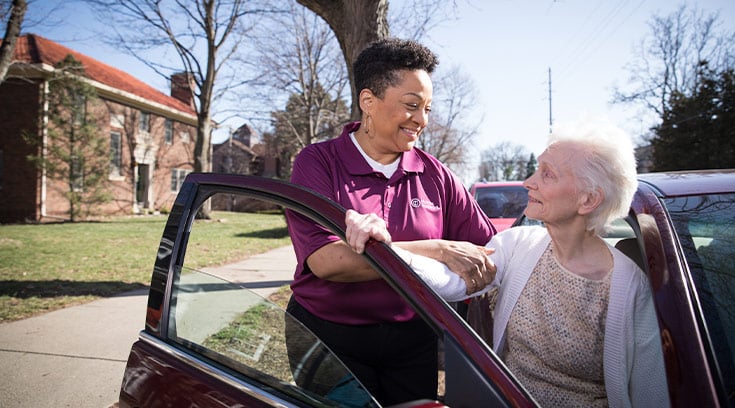You enter your dad's home and can't believe the stacks of stuff that has accumulated on every flat surface. Piles of newspapers and mail on the kitchen counter, the medicine cabinet overflowing with 10 years’ worth of hair spray (despite his being bald), heaps of dirty laundry on the bed so there is no place for him to sleep. You wonder how it got this bad.
Experts say that seniors are prone to cluttering for a variety of reasons, including fear of loss, anxiety, depression, not knowing how to get rid of possessions, or even memories associated with specific items that hold no intrinsic value.
"It's sort of the elephant in the room," said Dr. Catherine Roster, a University of New Mexico clutter researcher. "People don't want to acknowledge there is a problem, which creates an underlying anxiety, stress, guilt or embarrassment that can have a negative effect on their mental health and productivity. There are a lot of issues (involved) – including economics. When there is general disorganization, people lose important documents and can't find bills and then miss payments. So, some serious issues start affecting them. All the research shows that people are slow to recognize the problem."
Additionally, there are many safety risks for older adults who live in clutter. From slipping on loose papers to the threat of fire to the health effects of mold and mildew. Clutter can also interfere with family relationships and leave adult children wondering if the only inheritance awaiting is a big mess.
As far as getting rid of stuff, it’s really a two-step process: sorting/deciding and disposing. That's according to University of Kansas Professor Dr. David Ekerdt, who is coordinating a "household moves" project to determine the role that possessions play in older people's housing decisions. But convincing seniors can be a challenge.
If you’re having trouble getting your aging loved one to let go of the clutter, here are some strategies from Katherine Anderson, CPO-CD, president of the National Study Group on Chronic Disorganization (NSGCD), and Vickie Dellaquila, certified professional organizer and author of Don't Toss My Memories in the Trash.
5 Ways to Tackle Home Clutter
Reviewing these home safety tips and using this room-by-room safety checklist may help families begin to tackle the clutter.
1. Arrange and Cheer Small Victories
Spend a short time helping clear off a table and celebrate the accomplishment together.
2. Conduct An "Experiment"
If your loved one has more margarine tub containers than they can count, suggest donating some to a school for a painting project. Allow some time to go by and ask how he or she felt giving those up. Chances are they won't feel as awful as suspected.
3. Gently Approach the Idea of Health and Safety.
Remind your loved ones that too much clutter can actually keep them from living safely in their homes, which could jeopardize their ability to age in place at home. They could trip over papers on the floor or lose bills and medications.
4. Draft an Agreement
Agree to box up unused clothing or tools. Carefully list what's in the box and track that for six months. If your loved one does not use the items in that time, suggest donating them to a charity.
5. Consider the Control Issue
Clutter is all about control, but so is being the one to decide where stuff goes. Remind your loved ones if they don't decide where something will go, someone else will.
Once the home has been de-cluttered, use these tips to keep a senior’s house clean.
Signs Clutter Could Start Creeping up on Older Adults
- Piles of mail and unpaid bills
- Difficulty walking safely through a home
- Frustration trying to organize
- Difficulty managing activities of daily living
- Expired food in the refrigerator
- Jammed closets and drawers
- Compulsive shopping
- Difficulty deciding whether to discard items
- A health episode such as a stroke or dementia
- Loneliness
Compassionate Home Care




